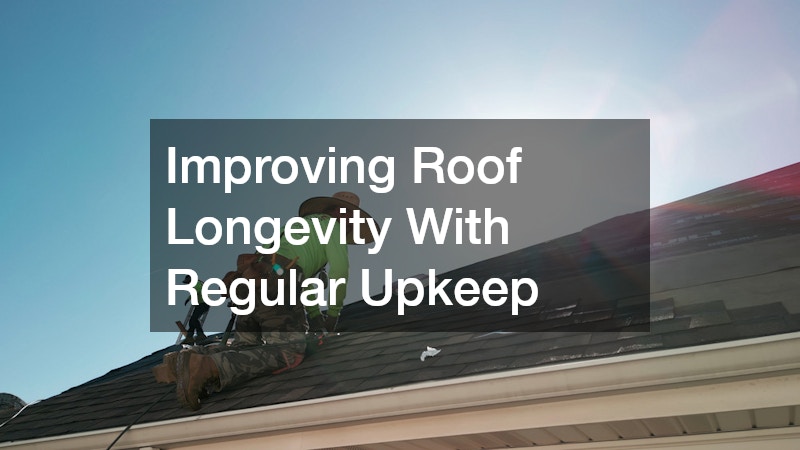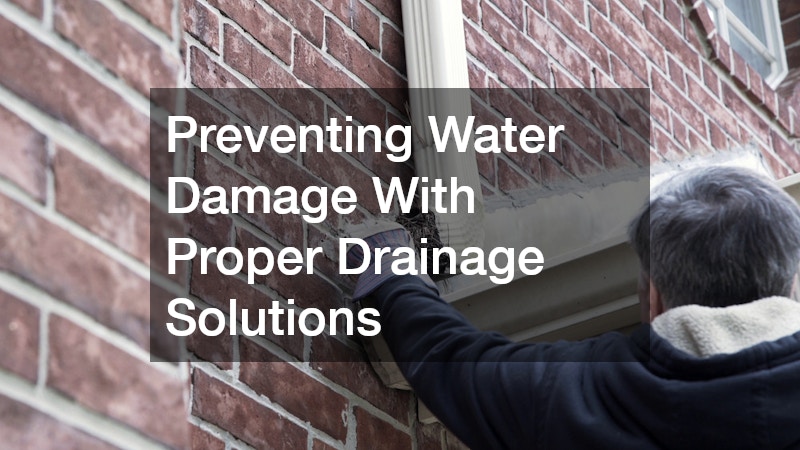Smart Investments in Affordable Housing Maintenance for Better Living
Housing is one of the most important foundations of a strong community, and when people have safe and dependable places to live, their overall quality of life improves dramatically. For families and individuals, a well-maintained home provides stability, security, and the opportunity to thrive. For property managers and organizations, keeping housing in good condition reduces long-term costs, ensures compliance with regulations, and builds stronger trust with residents. With these benefits in mind, it is clear that taking care of residential properties is not only about short-term fixes but also about long-term strategies that make housing sustainable and livable for years to come.
Investing in the upkeep of residential buildings also reduces the likelihood of major breakdowns. When regular inspections and repairs are prioritized, property owners can prevent small issues from becoming large-scale problems. A leaky faucet left unattended might lead to water damage, while a neglected roof could cause structural issues that impact the entire property. Addressing these issues early preserves the value of the building and keeps residents safe.
Another key aspect of home care is that it extends beyond just protecting the physical structure. Maintenance also contributes to health and well-being. Proper plumbing ensures clean water access, pest control prevents infestations that spread disease, and safe construction methods help create environments where people feel comfortable. These investments build stronger communities where residents can feel proud of their homes.
Furthermore, the cost of upkeep should not be seen as an unnecessary expense. Instead, it should be recognized as a long-term investment. By budgeting for regular inspections, upgrades, and professional services, property owners and managers avoid the much larger costs associated with emergency repairs or major system failures. Over time, this approach helps to stabilize financial planning and create consistency in property management practices.
The sections that follow will explore different aspects of home upkeep, from roof care to water systems, waste management, and interior improvements. Each area contributes to a safe, functional, and enjoyable living environment. By considering these smart investments, both individual homeowners and community housing organizations can ensure they are supporting better living standards for everyone.
Improving Roof Longevity With Regular Upkeep

Roofs play a vital role in shielding homes from the elements. They take the brunt of heavy rain, wind, and sunlight, making them one of the most important features to maintain. Regular inspections can help identify issues such as missing shingles, weakened flashing, or early signs of leaks. By addressing these problems early, homeowners and managers reduce the risk of water infiltration that can compromise structural integrity.
Working with a professional roofer ensures that repairs and replacements are done correctly. Skilled technicians understand how to spot hidden weaknesses that the untrained eye might miss. By scheduling seasonal inspections and investing in quality materials, property owners extend the life of their roofs and reduce the likelihood of costly replacements.
Beyond functionality, roofs also impact energy efficiency. Proper insulation and ventilation help regulate indoor temperatures, lowering energy bills and making homes more comfortable. Keeping the roof in top shape is therefore an essential component of affordable housing maintenance, as it reduces expenses while protecting the property.
Ensuring Reliable Water Systems Through Repairs
Water is essential in every home, and reliable systems are necessary for cooking, cleaning, and sanitation. Even minor issues, like a slow drip, can waste gallons of water each day, leading to higher utility bills and potential property damage. Routine inspections of pipes, faucets, and fixtures can identify issues before they escalate.
A qualified plumber provides expertise in diagnosing and fixing both common and complex problems. From unclogging drains to replacing outdated piping, these professionals ensure that water systems function efficiently and safely. Investing in timely repairs not only improves day-to-day living but also prevents emergencies that disrupt households.
Reliable water systems also support public health. Properly functioning fixtures reduce the risk of mold growth, bacterial contamination, and water damage. By working with professionals to keep plumbing in good condition, property owners demonstrate a commitment to long-term affordable housing maintenance that benefits both the structure and its residents.
Protecting Homes With Strong Structural Coverings
The roof is more than just shingles—it is an entire system that includes underlayment, flashing, and ventilation. Comprehensive roofing services address all of these elements, ensuring that homes remain well-protected against weather conditions. Regular upkeep prevents small issues from worsening and extends the overall lifespan of the roof.
Professionals offering roofing services also provide guidance on materials that balance durability and cost-effectiveness. Choosing the right solutions helps property owners avoid unnecessary expenses while keeping residents comfortable and safe. In the context of affordable housing maintenance, this careful planning ensures long-lasting protection without straining budgets.
Roofing upgrades may also enhance a property’s curb appeal, increasing both resident satisfaction and community value. Strong, well-maintained roofs signal to residents that the property is cared for, which builds trust and pride in the housing community.
Enhancing Kitchens and Bathrooms With Durable Surfaces

Kitchens and bathrooms are among the most heavily used areas in any home. Countertops, in particular, experience daily wear from food preparation, cleaning, and constant use. Choosing durable materials and working with a reliable countertop company ensures these spaces remain functional and attractive over time.
Quality countertops are not only visually appealing but also easier to maintain. Surfaces that resist staining, scratching, and water damage save property owners money on future repairs and replacements. This is particularly important in affordable housing maintenance, where long-lasting solutions contribute to lower long-term costs.
Upgrading surfaces also boosts resident satisfaction. When kitchens and bathrooms are practical, clean, and visually appealing, people feel more at home and take greater pride in their living spaces. This helps create stronger communities where housing is both functional and enjoyable.
Managing Waste Systems for Healthier Living Environments
Proper waste management is critical for maintaining a safe and sanitary home. Septic systems, in particular, require regular maintenance to prevent leaks, backups, and environmental hazards. Partnering with a trusted septic company ensures these systems are inspected and serviced on schedule.
Neglecting septic maintenance can lead to unpleasant odors, costly damage, and even health risks. Investing in professional inspections and pumping reduces the chances of emergency situations and keeps homes running smoothly. Affordable housing maintenance strategies must include waste management, as these systems directly impact the well-being of residents.
By prioritizing septic care, property owners not only avoid expensive repairs but also protect local environments. Clean, functioning systems contribute to healthier communities and demonstrate responsible housing management.
Securing Safe Drinking Sources With Expert Drilling
In areas that rely on private wells, ensuring access to safe, clean water is essential. A professional well driller provides expertise in constructing and maintaining systems that deliver reliable drinking water to households. Regular testing and upkeep are critical to identifying contaminants and maintaining water quality.
Investing in well care supports both health and long-term cost savings. Without proper attention, wells can deteriorate or become contaminated, leading to expensive remediation efforts. By including water sources in affordable housing maintenance planning, property owners safeguard a vital resource for residents.
Safe water access not only meets basic needs but also enhances overall community well-being. Families thrive when they know their water is dependable, and this stability builds trust between residents and property managers.
Preventing Water Damage With Proper Drainage Solutions

Water damage is one of the most common and costly problems in housing. Effective drainage systems, such as gutters, play a critical role in directing rainwater away from roofs and foundations. Without them, water can seep into basements, damage siding, and erode landscaping.
A reliable gutter company provides installation, repair, and maintenance services that ensure systems work properly year-round. By investing in high-quality gutters, property owners avoid expensive structural damage and create safer living environments.
Incorporating gutter upkeep into affordable housing maintenance plans protects properties from water-related issues while ensuring long-term durability. These proactive steps help keep repair costs manageable and maintain the value of the property.
Maintaining Walls for Long-Term Home Integrity
Walls are more than just barriers—they provide insulation, stability, and protection from outside elements. Over time, they may suffer from cracks, holes, or moisture damage that compromise both appearance and structural strength. Partnering with drywall contractors ensures that walls remain solid and reliable.
Professional repairs restore walls to their original condition, improving both function and aesthetics. This attention to detail enhances comfort for residents while reducing the likelihood of more serious damage in the future.
Affordable housing maintenance must prioritize wall integrity, as neglecting even minor repairs can lead to major expenses. With proper care, walls remain durable, helping homes last for generations.
Protecting Residences from Infestations
Pests not only cause property damage but also pose health risks to residents. From termites that weaken wooden structures to rodents that spread disease, infestations can quickly escalate if left unchecked. A skilled pest exterminator provides tailored solutions to eliminate current problems and prevent future ones.
Regular inspections are key to keeping homes pest-free. Preventive treatments save money by reducing the need for large-scale interventions later. By including pest management in affordable housing maintenance practices, property owners protect both the structure and the well-being of those who live there.
A safe, pest-free environment contributes to greater resident satisfaction, stronger community trust, and healthier living conditions overall, while also reducing costly repairs and minimizing long-term maintenance challenges for property managers.
Keeping Households Running With Essential Fixes

Plumbing systems are central to everyday comfort. From showers and sinks to toilets and appliances, residents rely on these systems constantly. When problems arise, they can disrupt daily life and cause costly damage. A dependable plumbing service ensures that essential repairs are handled quickly and effectively.
From replacing water heaters to addressing leaks, these professionals provide solutions that keep households functional. Regular maintenance prevents emergencies and extends the lifespan of plumbing systems.
Affordable housing maintenance must include plumbing care, as reliable systems directly affect residents’ quality of life. Proactive service ensures that homes remain safe, sanitary, and comfortable.
Maintaining housing is about more than repairs—it is about creating environments where people can live securely and comfortably. Every aspect, from roofs and water systems to walls, surfaces, and pest control, plays a role in the long-term value and livability of a property. When communities and property owners view upkeep as an investment rather than an expense, the benefits extend far beyond immediate savings.
One of the most important aspects of ongoing care is consistency. By scheduling inspections and relying on skilled professionals, property managers can identify problems early and avoid costly emergencies. This approach ensures not only the safety of the property but also the satisfaction of residents who depend on reliable housing. Investing in preventive measures reduces stress for both managers and families, allowing everyone to enjoy the stability of a well-maintained home.
Health and safety are closely tied to property care, making well-planned property upkeep an essential priority. Proper waste management, pest prevention, and plumbing services reduce risks of illness and contamination, while reliable roofing and drainage systems protect against structural damage that can compromise entire buildings. Routine inspections and timely repairs further enhance living conditions, showing the tangible benefits of prioritizing proactive home maintenance as a shared responsibility across communities.
Beyond safety and cost savings, property upkeep fosters pride and engagement among residents. When homes are consistently maintained, occupants can feel valued and respected, encouraging them to participate in community activities and take care of shared spaces. This collective attention to regular housing care strengthens neighborhoods, promotes social cohesion, and supports long-term stability. It also sends a clear message that quality living standards are achievable and sustainable for all residents.
Ultimately, investing in home care yields lasting rewards. By making strategic decisions, partnering with experienced professionals, and committing to ongoing property maintenance, property managers and owners create homes that endure. Families enjoy safer, healthier, and more comfortable living conditions, while communities benefit from increased resilience and a stronger sense of belonging. Viewed this way, consistent residential upkeep is not only a practical necessity—it is a meaningful investment in the future well-being and prosperity of individuals and neighborhoods alike.



